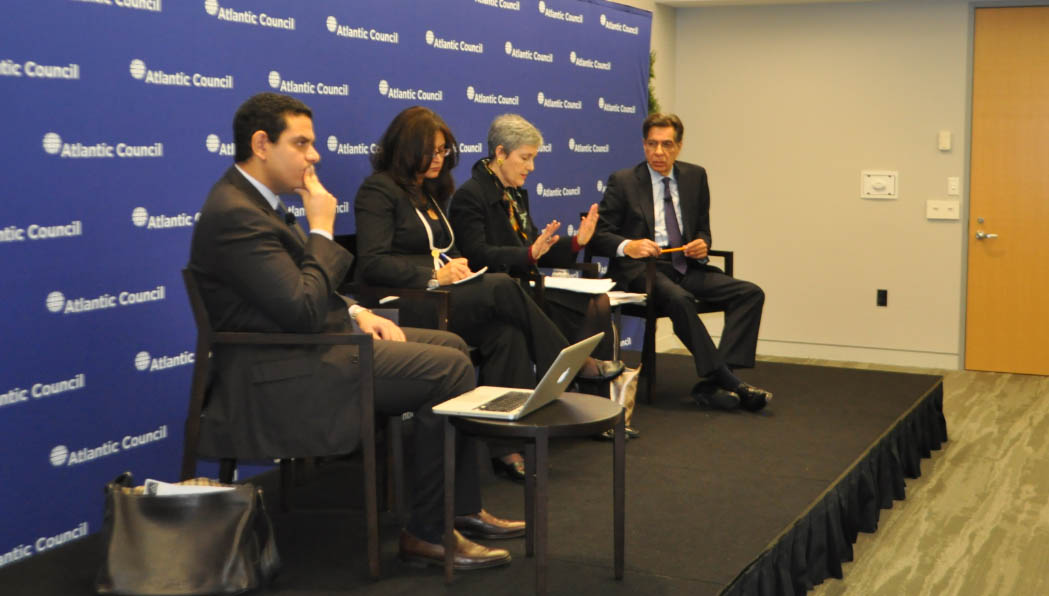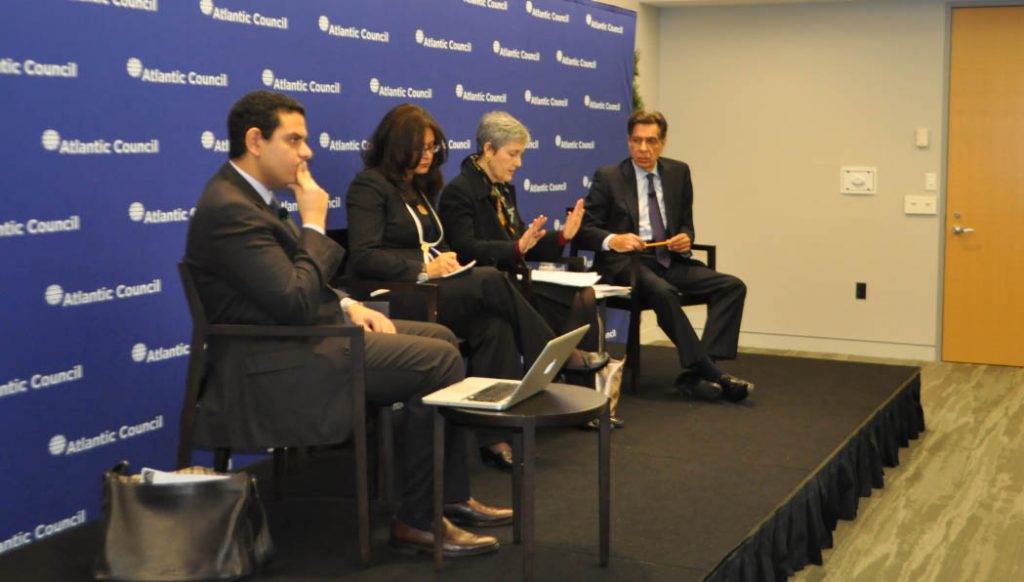 Three years after a wave of popular uprisings swept aside long-standing regimes in Egypt, Tunisia, Libya, and Yemen, the future of the region remains uncertain. The Rafik Hariri Center for the Middle East held a panel discussion on March 11th to discuss the current state of the Arab transitions to look ahead at economic and political trends to watch throughout the region. The discussion featured Ellen Laipson, President and CEO of the Stimson Center, Yasser El-Shimy of Boston University, and Hariri Center senior fellow Mohsin Khan. Mirette F. Mabrouk, the Hariri Center deputy director for regional programs, moderated the discussion.
Three years after a wave of popular uprisings swept aside long-standing regimes in Egypt, Tunisia, Libya, and Yemen, the future of the region remains uncertain. The Rafik Hariri Center for the Middle East held a panel discussion on March 11th to discuss the current state of the Arab transitions to look ahead at economic and political trends to watch throughout the region. The discussion featured Ellen Laipson, President and CEO of the Stimson Center, Yasser El-Shimy of Boston University, and Hariri Center senior fellow Mohsin Khan. Mirette F. Mabrouk, the Hariri Center deputy director for regional programs, moderated the discussion.
Related Publications
|
Laipson began the discussion by placing the transitions in a global context and looking at how they compare to other revolutions. She stressed the need to for observers to be patient as revolutions can take years to truly galvanize a deep social change in societies. She cited the experiences of revolutions in Ukraine, the Philippines, and Argentina and noted that many such regimes are still confronting—sometimes decades later—the issues that originally sparked revolutionary change.
El-Shimy lamented that by and large instability and economic concerns plaguing the region are leading many to turn away from democratic ideals as security deteriorates and economic crises leave peoples focused on more basic, immediate needs. However, there is no doubt, said el-Shimy, that the power of the states in the Middle East and North Africa are likely to be diminished in the context of popular uprisings that are demanding more accountability.
Khan gave an overview of the economic impact the transitions had on the countries, noting that all four economies floundered during the upheaval as economic growth completely collapsed. Khan emphasized that since the Arab Spring countries did not have economic models to turn to, they instead relied on ad hoc populist policies that have failed to achieve economic growth. He pointed to deals inked between these countries and the International Monetary Fund as an opportunity to provide a much needed economic roadmap in the region.
